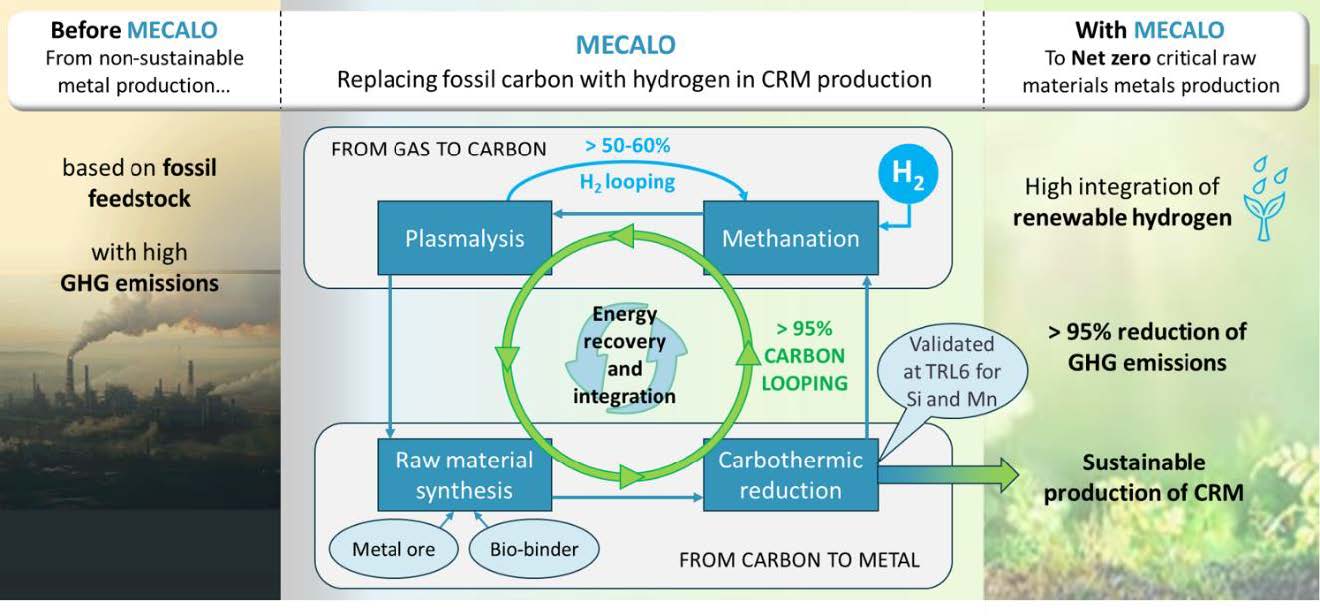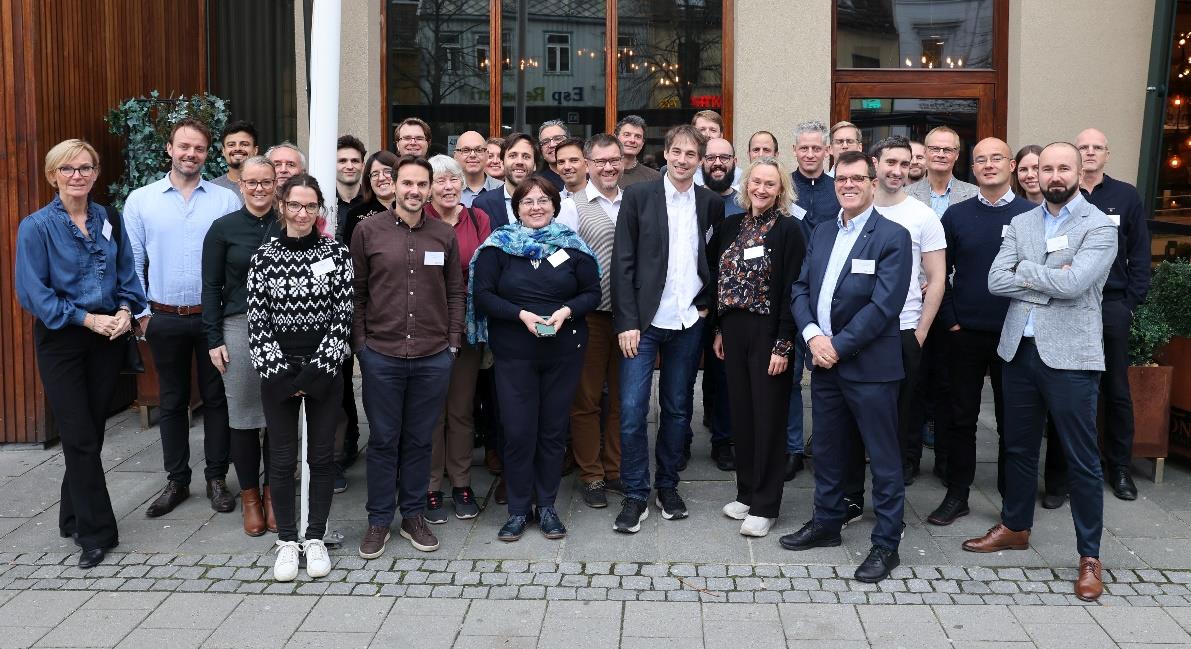MECALO – CO2 Free Production of Critical Raw Materials Using Hydrogen

The main ambition of MECALO is to demonstrate its innovative concept of renewable hydrogen and carbon looping for CO2-neutral production of Silicon (Si) and Manganese (Mn). It also aims to revolutionise the production of essential materials for European industry, making it cleaner and more sustainable through the use of hydrogen. This will strengthen the EU’s capacities and resilience for a secured and sustainable supply of these critical raw materials (CRMs) in line with the European Critical Raw Materials Act, in a sustainable, carbon-neutral way.
Through the Horizon Europe Framework Programme for research and innovation, the European Union for the period 2021-2027, finances research and innovation and R&I support activities. The Programme is implemented directly by the European Commission.
It is within this framework that the MECALO Project was conceived and presented.
Hydrogen derived from renewable energy sources is anticipated to play a significant role in reducing carbon emissions in a large portion of the EU’s metallurgical sector by 2050. Because its use produces no CO2 emissions, sustainably sourced hydrogen presents a viable option for decarbonizing these challenging industries. Various materials are produced through carbothermic reduction, which relies on fossil carbon as a raw material and generates CO2 as an unavoidable by-product. One potential application is as a replacement for fossil carbon in metallurgical processes, like iron production. However, hydrogen is a less effective reductant than carbon, so some metals cannot be produced directly with hydrogen, which presents a challenge. In the production of several strategically important metals, such as silicon and manganese – both classified as essential raw materials – hydrogen cannot directly substitute carbon, leaving fewer options for decarbonization. These metals are essential for advancing European clean technology initiatives and achieving the EU’s climate neutrality target by 2050.
Both Si and Mn are categorized as Critical Raw Materials (CRMs) and Strategic Raw Materials (SRMs). Despite strong demand and the critical and strategic use of Si and Mn, Europe is still lagging behind in the supply of these CRMs. For Silicon, China is the largest global supplier, coming in to provide 76% of silicon demand. Also contributing globally are France, Spain and Slovakia with 5%. As for Europe, Norway ranks first as main EU suppliers, providing 33% of Si. Concerning ferromanganese (FeMn), while China and India supply 40% and 21% respectively, France and Norway supply only 3% and 2% respectively. There is therefore an urgent need to bring Europe onto the international stage when it comes to producing these critical raw materials. MECALO concept has what it takes to position Europe as a strategic and essential producer of materials.
The European Commission has proposed regulations aimed at enhancing the EU’s capabilities and resilience within the CRM and SRM value chains, but achieving this sustainably requires that the production of this critical and strategic materials occurs without CO22 emissions.
The overarching goal of the MECALO project is to develop an innovative, CO2-free production model for critical raw materials, utilizing renewable hydrogen to eliminate the reliance on fossil carbon. The objectives include:
Saving 33 million tonnes of annual CO2 emissions by 2050. The approach can be applied across various carbon reduction processes without necessitating developing entirely production technologies starting from low Technology Readiness Level (TRL). Consequently, MECALO will enhance the EU’s capacity and resilience, ensuring a secure and sustainable supply of these critical materials. The project is bringing together leading EU research and technology organizations (RTOs) and industries across the CRM value chain, including two major players in Silicon and Manganese production.
- Achieving a 95% reduction in CO2 emissions from Si and Mn production.
- Replacing 9 million tonnes of annual coal imports with 15 billion Nm3 of hydrogen by 2050.
- Saving 33 million tonnes of annual CO2 emissions by 2050.
The approach can be applied across various carbon reduction processes without necessitating developing entirely production technologies starting from low Technology Readiness Level (TRL). Consequently, MECALO will enhance the EU’s capacity and resilience, ensuring a secure and sustainable supply of these critical materials. The project is bringing together leading EU research and technology organizations (RTOs) and industries across the CRM value chain, including two major players in Silicon and Manganese production.
The project partners met in Trondheim, Norway, on 28 and 29 October to explain their role in the project and the work that will be carried out over the next 42 months. On the second day of the meeting, a visit was scheduled to Sintef’s laboratories where they were shown the laboratories and equipment that will be needed to achieve the project goals.
MECALO project, coordinated by SINTEF, is gathering a multidisciplinary consortium composed by 15 partners and affiliated entities from 8 different member states and associated countries. The project beneficiaries are 4 Research Center 4 Small and Medium Companies, 5 Inustries, 2 Others. As a result, the partners cover the entire value chain over the MECALO concept.

